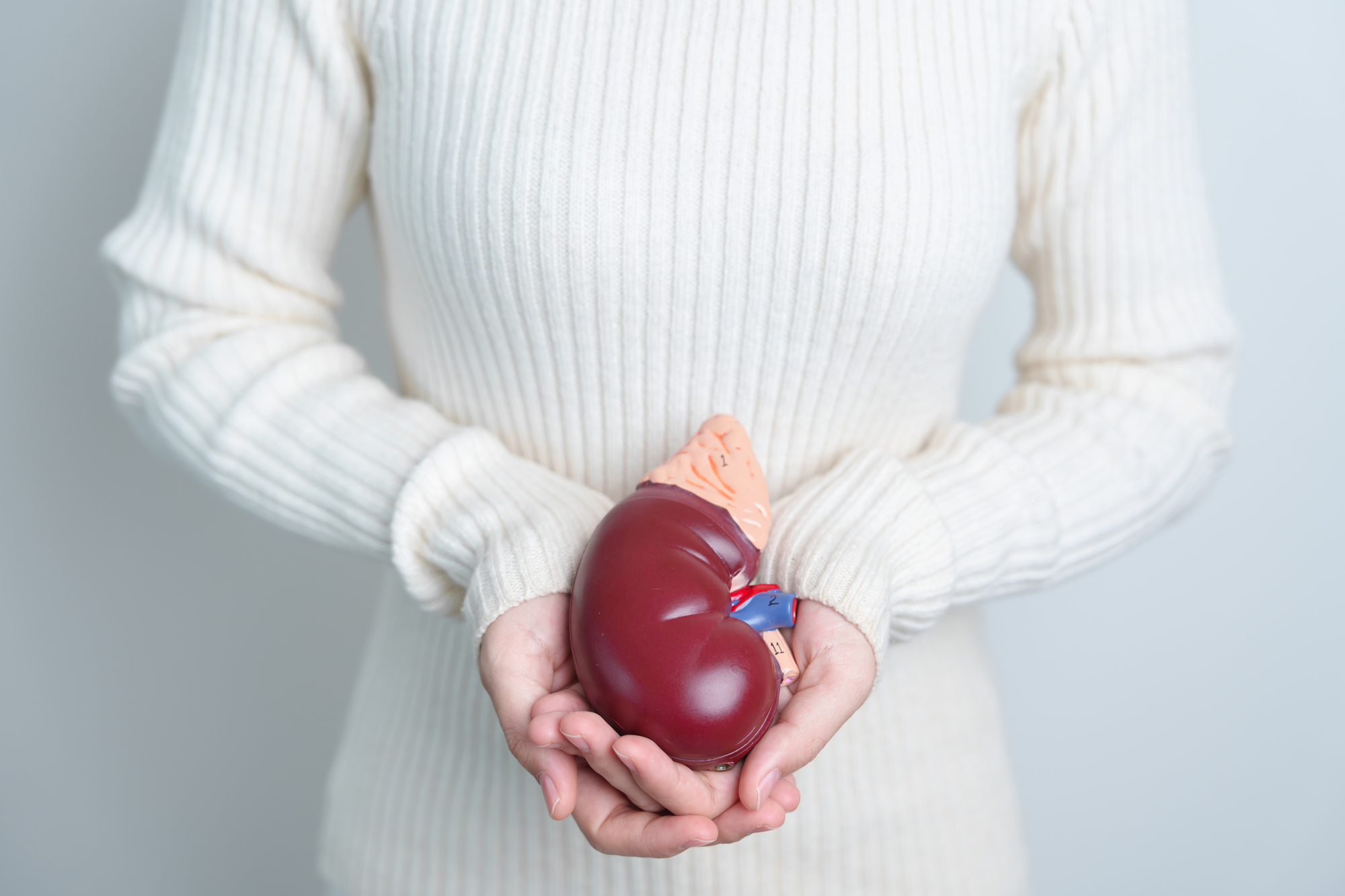
5 minute read
It starts with a simple phone call
B.K. STUBBLEFIELD
Dear Reader and Community of Hope,
I am reaching out to you today with a mother’s heart, heavy with worry, yet filled with hope for human kindness and medical miracles that could change the course of our son Chris’s life. Chris was recently diagnosed with end-stage kidney disease. This news has shaken our world to its core, and while we are still grappling with the reality of it, time is not on our side.
December 28th marked the beginning of urgentstart peritoneal dialysis. This procedure is a testament to the severity of his condition. It is not a cure but a temporary lifeline, giving us precious time to find a more permanent solution—a kidney transplant.
The journey ahead is daunting. The list for a kidney transplant is long, and every day we wait, Chris’s health is declining. Therefore, I am reaching out to all of you. We are searching for a living kidney donor who might give Chris a chance at a healthier, longer life.
If you or anyone you know is Blood Type O, under the age of 50, in good general health, and ever considered the possibility of donating a kidney, I implore you to get in touch with the University of Kentucky Transplant Center at 859-323-2467.
Your courage could transform Chris’s life and the lives of all who love him. But even if you are not a match for him, there is a remarkable avenue for hope I wish to share with you. The Kidney Paired Exchange is a transformative program that allows incompatible donors to still donate their kidney. In exchange, Chris receives a compatible kidney from another donor in the network. This ‘exchange’ creates a chain of giving that not only benefits the initial pair but can also save multiple lives in a domino effect of generosity and hope.
By raising awareness of his incredible program, we aim not only to find a match for Chris but also to illuminate this option for others who may find themselves in a similar position.
If you are considering donating a kidney to Chris but are incompatible (Blood Type or other factors) or if you simply want to give the gift of life, the Kidney Paired Exchange can be a powerful way to extend your impact. We understand the decision to donate an organ is profound and personal. Whether you are a potential donor or someone who can amplify our message, your involvement might be the key to unlocking a new chapter of health and joy for Chris and many others.
The University of Kentucky’s Transplant team, equipped with knowledge and compassion, guides donors and recipients through this process, ensuring the best possible outcomes for all involved. Donors do not incur any medical costs.
You have the power to be part of a story of survival and hope that’s transcends individual struggles. Even if donation is not a possibility for you, I would be grateful if you could share our story.
Thank you for considering this message of hope and for any support you can lend. And above all, thank you for your compassion and your kindness. It is a beacon of light in this difficult time.
With sincere gratitude and hope,
Birgit Stubblefield
University of Kentucky Transplant Center
Ph. 859-323-2467
General Information on Living Donation
Living donation takes place when a living person donates an organ (or part of an organ) for transplantation to another person. The living donor can be a family member, such as a parent, child, brother or sister (living related donation).
Living donation can also come from someone who doesn’t have an emotional relationship with the recipient, such as a friend of a friend, coworker, fellow member at their place of worship, neighbor or someone that hears through social media. Thanks to improved medications, a genetic link between the donor and recipient is no longer required to ensure a successful transplant. You don’t even need to have the same blood type as your potential donor to get a kidney because there are internal paired exchange programs within transplant centers and national paired exchange programs that allow an incompatible pair to match up with another incompatible pair; allowing the two donors to switch recipients.
What organs can come from living donors?
The organ most commonly given by a living donor is the kidney. Parts of other organs including the lung, liver and pancreas are now being transplanted from living donors.
Who can be a living kidney donor?
You must be at least 18 years old at all transplant centers. Some centers require a donor to be 21 or a little older. There are some medical conditions that could prevent you from being a living donor. These include having uncontrolled high blood pressure, diabetes, cancer, HIV, hepatitis, or acute infections. You should always let the transplant center decide if you can be a living donor.
Are transplants from living donors always successful?
Although transplantation is highly successful, and success rates continue to improve, there is still a small chance that problems may occur. Sometimes, the kidney is lost to rejection, surgical complications or the original disease that caused the recipient’s kidney to fail. Talk to the transplant center staff about their success rates and the national success rates.
Source: https://www.kidney.org/transplantation/ livingdonors/general-information-living-donation

B.K. Stubblefield, a dog-loving writer from Germany, now calls Kentucky home. Settled in Elizabethtown, she draws inspiration from the slower pace of smalltown living, crafting the Oak Creek series. Her passion for dogs shines through her heartfelt stories. Visit her website at https://bkstubblefield.com/.










